Editor’s note: The following is extracted from Ten Great Events in History, by James Johonnot (published 1887).
In April an army from Germany, raised through the influence of the Prince of Orange, and commanded by his brother, Count Henry of Nassau, marched into the Low Countries; but the Spaniards dominated the land as the Dutch the sea, and the relief array was defeated and Count Henry was killed. This defeat, however, to the patriot cause, was almost equal to a victory. The Spanish troops, who had long been without pay, became mutinous and unmanageable, and before they could be appeased much precious time was lost. The Prince of Orange made the best use of this time. The revolted cities were strengthened and supplied with provisions, and every preparation made for both defensive and offensive war. But, best of all, the Dutch admiral boldly sailed up the Scheldt, captured forty of the Spanish vessels, and sunk many more.
At length the Spanish general was once more ready to continue his aggressive movements, and he proceeded to lay siege to the populous city of Leyden. The story of this siege is one of the most spirit-stirring in the annals of heroism. Leyden stands in a low situation, in the midst of a labyrinth of rivulets and canals. That branch of the Rhine which still retains the name of its upper course passes through the middle of it, and front this stream such an infinity of canals are derived that it is difficult to say whether the water or the land possesses, the greater space. By these canals the ground on which the city stands is divided into a great number of small islands, united together by bridges.
For five months all other operations were suspended; all the energy of Requesens, on the one hand, was directed toward getting possession of the city, and all the energy of the Prince of Orange, on the other hand, toward assisting the citizens, and preventing it from being taken. The issue depended entirely, however, on the bravery and resolution of the citizens of Leyden themselves. Pent up within their walls, they had to resist the attacks and stratagems of the besiegers; and all that the Prince of Orange could do was to occupy the surrounding country, harass the besiegers as much as possible, and enable the citizens to hold out, by conveying to them supplies of provisions and men.
There was not in the city a single scion of a noble family. There were no men trained to military operations. It was a city of artisans and tradesmen, and the Spaniards expected scarcely more than a show of resistance from a foe so ignoble. As well might the sheep resist a pack of ravening wolves as the men of the counting-house and workshop resist the best trained soldiers of Europe. But nobly, nay, up to the highest heroic pitch of human nature, did the citizens behave! They had to endure a siege in its most dreary form—that of a blockade. Instead of attempting to storm the town, Valdez, the Spanish general, resolved to reduce it by the slow process of starvation. For this purpose he completely surrounded the town by a circle of forts more than sixty in number; and the inhabitants thus saw themselves walled completely in from the rest of the earth, with its growing crops and its well-filled granaries, and restricted entirely to whatever quantity of provisions there happened to be on the small spot of ground on which they walked up and down. Their only means of communication with the Prince of Orange was by carrier-pigeons trained for the purpose.
One attempt was made by them to break through the line of blockade, for the sake of keeping possession of a piece of pasture-ground for their cattle; but it was unsuccessful; and they began now to work day and night in repairing their fortifications, so as to resist the Spanish batteries when they should begin to play. Like fire pent up, the patriotism of the inhabitants burned more fiercely and brightly; every man became a hero, every woman an orator, and words of flashing genius were spoken and deeds of wild bravery done, such as would have been impossible except among twenty thousand human beings living in the same city, and all roused at once to the same unnatural pitch of emotion.
The two leading spirits were John van der Dors, the commander, better known by his Latinized name of Dousa; and Peter van der Werf, the burgomaster. Plebeian names these, but loftier natures never possessed the hearts of kings or nobles! Beside their deeds, the chivalry of knighthood looks trivial and mean. Under the management of these two men every precaution was adopted for the defense of the city. The resolution come to was, that the last man among them should die of want rather than admit the Spaniards into the town. Coolly, and with a foresight thoroughly Dutch, Dousa and Van der Werf set about making an inventory of all that was eatable in the town: corn, cattle—nay, even horses and dogs; calculating how long the stock could last at the rate of so much a day to every man and woman in the city; adopting means to get the whole placed under the management of a dispensing committee; and deciding what should be the allowance per head at first, so as to prevent their stock from being eaten up too fast.
It was impossible, however, to collect all the food into one fund, or to regulate its consumption by municipal arrangements; and, after two months had elapsed, famine bad commenced in earnest, and those devices for mitigating the gnawings of hunger began to be employed which none but starving men would think of. Not only the flesh of dogs and horses, but roots, weeds, nettles—everything green that the eye could detect shooting up from the earth—was ravenously eaten. Many died of want, and thousands fell ill. Still they held out, and indignantly rejected the offers made to them by the besiegers.
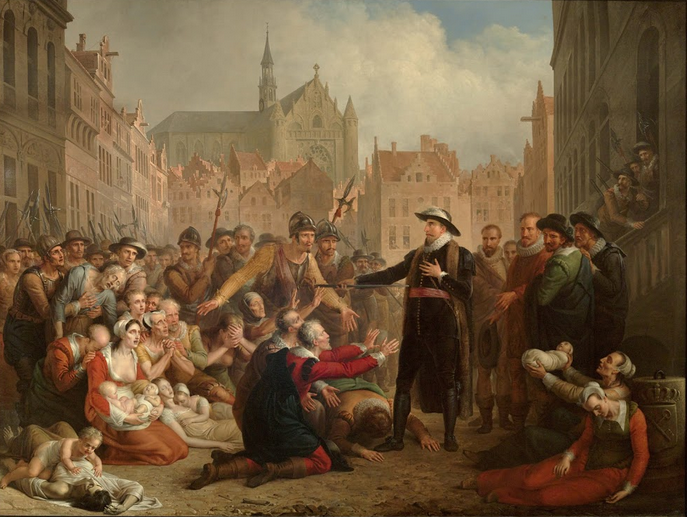
“When we have nothing else,” said Dousa, in reply to a message from Valdez, “we will eat our left hands, keeping the right to fight with.” Once, indeed, hunger seemed to overcome patriotism, and for some days crowds of gaunt and famished wretches moved along the streets, crying: “Let the Spaniards in; for God’s sake let them in!” Assembling with hoarse clamor at the house of Van der Werf, they demanded that he should give them food or surrender. “I have no food to give you,” was the burgomaster’s reply, “and I have sworn that I will not surrender to the Spaniards; but, if my body will be of any service to you, tear me in pieces, and let the hungriest of you eat me.” The poor wretches went away, and thought no more of surrendering.
The thought of the Prince of Orange night and day was how to render assistance to the citizens of Leyden—how to convey provisions into the town. He had collected a large supply, but, with all his exertions, could not raise a sufficient force to break through the blockade. In this desperate extremity the Dutch resolved to have recourse to that expedient which they had kept in reserve until it should be clear that no other was left—they would break their dikes, open their sluices, inundate the whole level country around Leyden, and wash the Spaniards and their forts utterly away!
It was truly a desperate measure, and it was only in the last extremity that they could bring themselves to think of it. All that fertile land, which the labor of ages had drained and cultivated—to see it converted into a sheet of water! There could not possibly be a sight more unseemly and melancholy to a Dutchman’s eyes. But, when the measure was once resolved upon, they set to work with a heartiness and zeal greater than that which had attended their building. Hatchets, hammers, spades, and pickaxes were in requisition; and by the labor of a single night the work of ages was demolished and undone. The water, availing itself of the new inlets, poured over the flat country, and in a short time the whole of the region between Leyden and Rotterdam was flooded.
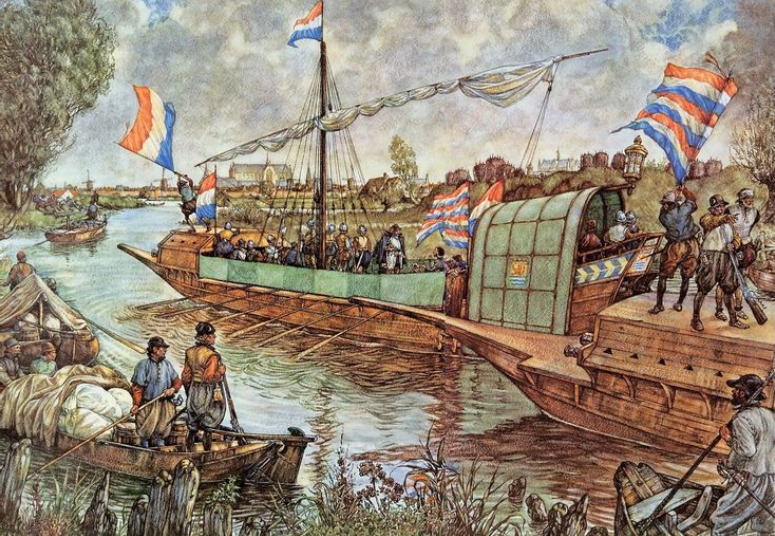
The Spaniards, terror-stricken, at first resolved upon immediate flight; but, seeing that the water did not rise above a certain level, they recovered their courage, and, though obliged to abandon their forts, which were stationed upon the low grounds, they persevered in the blockade. But there was another purpose to be served by the inundation of the country beside that of washing away the Spaniards, and the Prince of Orange made preparations for effecting it. He had caused two hundred flat-bottomed boats to be built, and loaded with provisions; these now began to row toward the famished city. The inhabitants saw them coming; they watched them eagerly advancing across the waters, fighting their way past the Spanish forts, and bringing bread to them. But it seemed as if Heaven itself had become cruel; for a north wind was blowing, and, so long as it continued to blow, the waters would not be deep enough for the boats to reach the city. They waited for days, every eye fixed on the vanes; but still the wind continued in the north, though never within the memory of the oldest citizen had it blown in that direction so long at that time of year. Many died in sight of the vessels that contained the food which would have kept them alive; and those who survived shuffled along the streets, living skeletons instead of men!
But the sea did not at last desert the brave men who had so long dominated it. At the last extremity it roused itself and swept down in its might upon the doomed Spaniards. When but two days stood between the starving citizens and death, lo! the vanes trembled and veered round; the wind shifted first to the northwest, blowing the sea-tides with hurricane force into the mouth of the rivers, and then to the south, driving the waters directly toward the city. The remaining forts of the Spaniards were quickly begirt with water. The Spaniards themselves, pursued by the Zealanders in their boats, were either drowned or shot swimming, or fished out with hooks fastened to the end of poles, and killed with the sword. Several bodies of them, however, effected their escape. The citizens had all crowded at the gates to meet their deliverers. With bread in their hands they ran through the streets; and many who had outlived the famine died of surfeit. The same day they met in one of the churches—a lean and sickly congregation—with the magistrates at their head, to return thanks to Almighty God for his mercy.
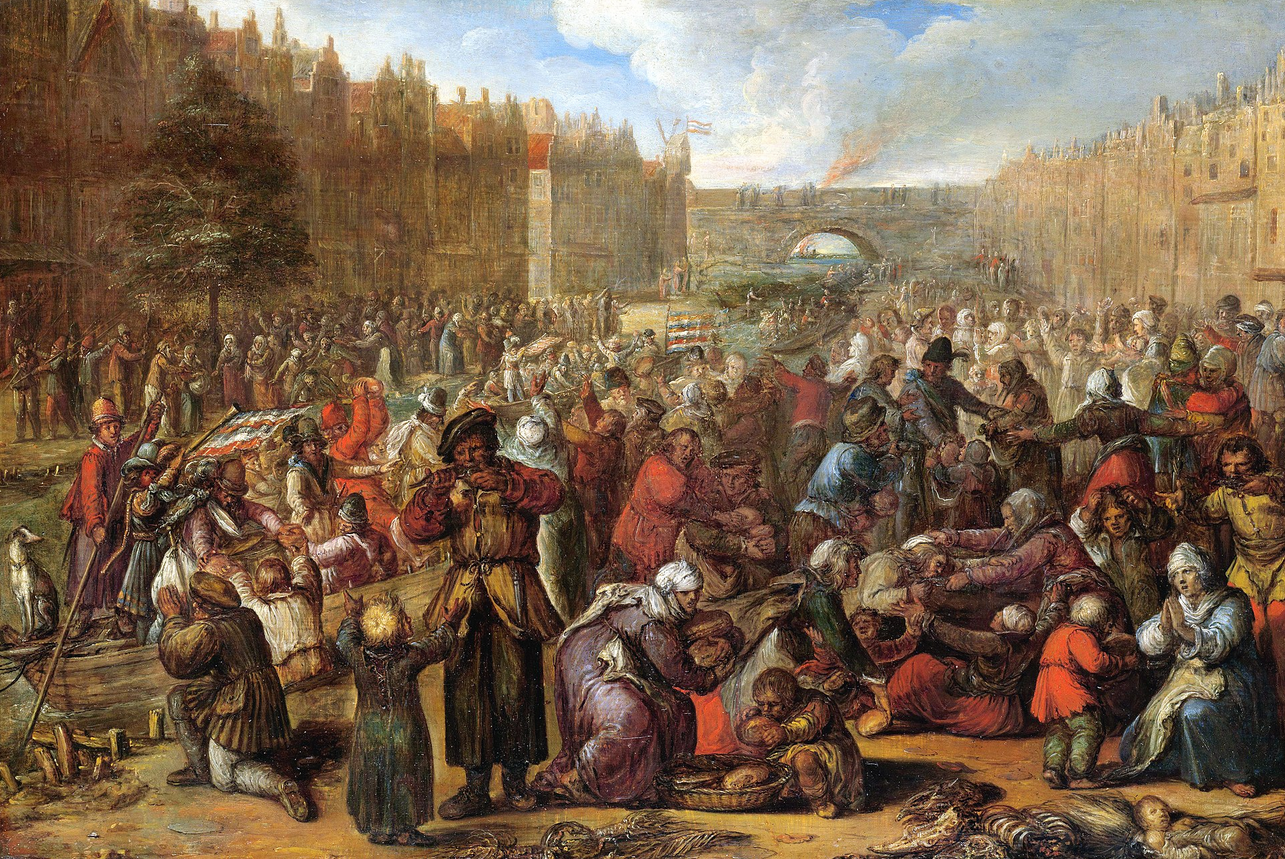
The citizens of Leyden had performed their duty nobly and well. It was a triple service—they had driven away from their city the hated Spaniard; they had secured the freedom of their country; and they had preserved liberty for mankind. No nobler deeds are chronicled in all history than this long battle with death, than this silent, uncomplaining endurance during the long weeks, while the life-giving succors were delayed by adverse winds. As a recompense to the people of Leyden for their heroic conduct, the Prince of Orange gave them the choice of exemption from taxes for a certain number of years, or of having a university established in the city; and, much to their honor, they preferred the latter. The University of Leyden was accordingly established in 1575. At one time it attained so high a reputation for learning that Leyden was styled the Athens of the West.

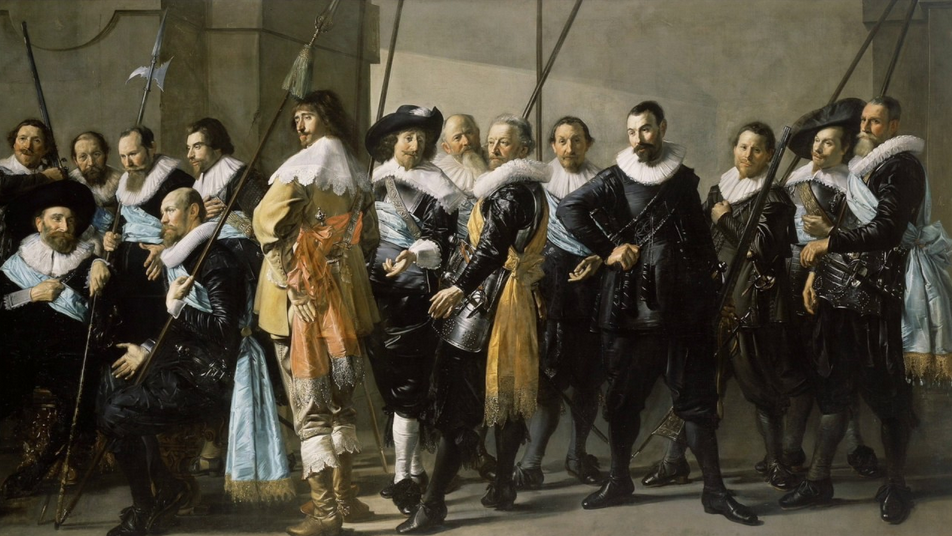

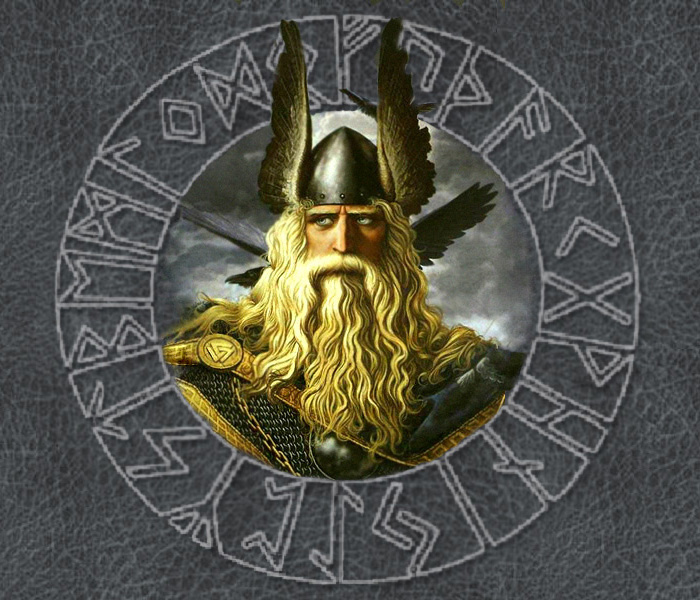






0.5
The fine line between sea and land really is amazing. http://dutchdikes.net/history/ one could see where opening the dikes would sound like a madman’s idea…completely drown your home rather than give it to another.
4.5